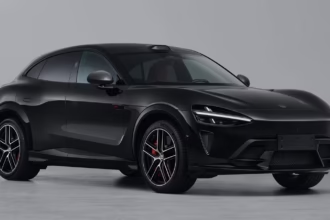Xiaomi to Launch EVs in Globally markets outsice China by 2027
China’s tech giant Xiaomi, known for its smartphones, has made waves in the electric vehicle (EV) market with its SU7 sedan and YU7 SUV.
However, fans outside China eagerly awaiting these vehicles will need patience. CEO Lei Jun announced during a recent livestream that Xiaomi global expansion will only be considered from 2027, as the company prioritizes its booming domestic market.
With strong orders in China, where the SU7 has outsold Tesla’s Model 3 monthly since December 2024, Xiaomi is focusing on resolving delivery backlogs before venturing abroad. What does this mean for the global EV market, and how might Xiaomi’s strategy shape its future?
Why the Delay in Global Sales for Xiaomi EV?
Why is Xiaomi holding off on international sales until 2027? The company is grappling with overwhelming demand in China, where the YU7 SUV saw robust orders within 18 hours of its launch in June 2025. This success has led to wait times exceeding a year for some customers.
By focusing on stabilizing its domestic supply chain, Xiaomi aims to ensure quality and reliability before tackling Xiaomi global expansion. How might this delay affect consumer expectations in markets like Europe or Southeast Asia, where EV demand is growing?
What Could Xiaomi’s Global Entry Mean for EVs?
Xiaomi’s potential entry into international markets by 2027 could shake up the global EV landscape. The SU7 and YU7, priced competitively against rivals like Tesla’s Model Y, have already proven their appeal in China.
With plans to invest $10 billion in its EV division over the next decade, Xiaomi is positioning itself as a serious contender. Could its tech expertise and affordable pricing challenge established automakers?
The global EV market is projected to grow rapidly, driven by environmental concerns and supportive policies, making Xiaomi’s timing strategic. How will competitors like BYD or Nio respond to this new player, only time will tell!
Opportunities and Challenges Ahead
What opportunities and challenges might Xiaomi face in its Xiaomi global expansion? Entering markets like Malaysia, where the SU7 was showcased in 2024, could capitalize on the region’s growing EV adoption.
However, regulatory hurdles, trade policies, and competition from local brands like Proton in Malaysia or global giants like Tesla could complicate Xiaomi’s plans.
By 2027, will Xiaomi’s focus on innovation and affordability give it an edge, or will it struggle to adapt to diverse international markets? The company’s ability to balance domestic success with global ambitions will be key.
Xiaomi’s cautious approach reflects a commitment to quality, but it also raises questions about missed opportunities in fast-growing EV markets. As 2027 approaches, the world will watch closely to see how Xiaomi navigates this bold leap.






